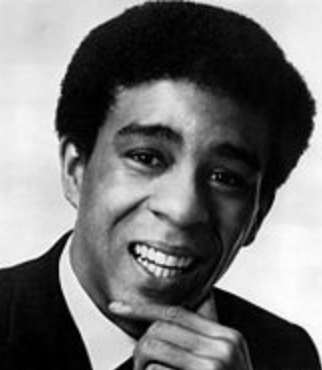Richard Pryor: The Funniest Man Who Ever Lived? The Comedic Rebel Who Told the Truth
- The Gooch
- Feb 8
- 4 min read
Richard Pryor: The Unfiltered Truth and Legacy of a Comedy Legend
Early Life & Influences
Richard Franklin Lennox Thomas Pryor III was born on December 1, 1940, in Peoria, Illinois. His upbringing was anything but conventional—raised in his grandmother’s brothel, he witnessed the harsh realities of life from a young age.

His father was an abusive alcoholic, and his mother, a prostitute, left him at an early age. Despite these struggles, young Richard found solace in humor, using comedy as both a shield and an escape from his turbulent surroundings.

Pryor idolized Bill Cosby in his early years, admiring Cosby’s clean-cut, observational comedy style. Wanting to emulate Cosby’s success, Pryor began performing stand-up in the late 1950s, honing his craft in small clubs.


His early act was relatively tame, resembling Cosby’s polished delivery, and earned him modest success. However, this imitation phase wouldn’t last long.


The Vegas Breakdown & Reinvention in Oakland
In the mid-1960s, Pryor landed a gig in Las Vegas, performing at the Strip’s top clubs. However, he struggled with the pressure of maintaining a clean, mainstream act. One night in 1967, mid-performance at the Aladdin Hotel, Pryor had an epiphany—he was living a lie.


He abruptly walked offstage, disillusioned with the sanitized version of himself he had been portraying.

Pryor retreated to Berkeley, California, immersing himself in the counterculture movement and surrounding himself with radical thinkers, musicians, and writers. This period of self-discovery transformed him.


He shed his Cosby-like persona and embraced his true voice—raw, unfiltered, and unapologetically honest. He began telling stories about race, poverty, drugs, sex, and his own troubled past, using humor as a means to dissect the realities of life in Black America.


The Rise to Stand-Up Greatness
By the early 1970s, Pryor had re-emerged as a comedic force unlike any other. His groundbreaking albums, including That Nr’s Crazy (1974), Is It Something I Said? (1975), and Bicentennial Nr (1976), showcased his fearless storytelling, biting social commentary, and impeccable character work. His stand-up routines were revolutionary—he spoke about police brutality, systemic racism, and his own personal demons with a mix of brutal honesty and gut-busting humor.

He wasn’t just funny; he was a truth-teller. His ability to shift between hilarious and heartbreaking moments made him stand out. He didn’t just tell jokes—he painted vivid pictures of life’s absurdities and injustices, making audiences both laugh and reflect.


Hollywood & Collaborations
Pryor’s comedic genius soon translated to Hollywood. He wrote for The Flip Wilson Show and Sanford and Son, and his big-screen career took off with roles in films like Lady Sings the Blues (1972) and Car Wash (1976).


However, it was his collaborations with Gene Wilder that became legendary. Films like Silver Streak (1976), Stir Crazy (1980), and See No Evil, Hear No Evil (1989) showcased the perfect comedic chemistry between the two, blending Pryor’s unfiltered energy with Wilder’s deadpan delivery.


Beyond Wilder, Pryor worked with Eddie Murphy, Richard Brooks, and other comedic greats. Murphy openly credits Pryor as one of his biggest inspirations, even casting him in Harlem Nights (1989) alongside Redd Foxx.

Breakdown of Richard Pryor’s Movies
Lady Sings the Blues (1972): A biographical drama about Billie Holiday, where Pryor played Piano Man, a key character who brought charm and humor to the film.


Car Wash (1976): A comedy classic featuring an ensemble cast, with Pryor making a memorable cameo as Daddy Rich, a flamboyant preacher.

Silver Streak (1976): Pryor's first major collaboration with Gene Wilder, a mix of comedy and thriller elements.

Greased Lightning (1977): A biopic where Pryor portrayed Wendell Scott, the first African American NASCAR driver.


Blue Collar (1978): A gritty drama where Pryor showcased his dramatic acting chops, playing a factory worker caught in a corrupt union.
The Wiz (1978): Pryor starred as The Wiz in this reimagining of The Wizard of Oz featuring an all-Black cast.
Stir Crazy (1980): One of his most famous films with Gene Wilder, about two innocent men sent to prison who get caught in a series of comedic misadventures.

Some Kind of Hero (1982): A dark comedy-drama where Pryor played a Vietnam War veteran adjusting to civilian life.


The Toy (1982): A controversial comedy where Pryor played a man hired as a rich kid’s “toy,” dealing with themes of race and class.

Superman III (1983): A surprising turn in the superhero genre, where Pryor played a bumbling computer genius.
Brewster’s Millions (1985): A hilarious comedy where Pryor’s character must spend $30 million in 30 days to inherit a fortune.

Jo Jo Dancer, Your Life Is Calling (1986): A semi-autobiographical drama reflecting Pryor’s own struggles with fame and addiction.

Harlem Nights (1989): A star-studded crime comedy directed by Eddie Murphy, featuring Pryor alongside Redd Foxx.
See No Evil, Hear No Evil (1989): Another hilarious Gene Wilder collaboration, where Pryor plays a blind man and Wilder plays a deaf man caught in a crime scheme.

Personal Struggles & The Infamous Incident
Despite his immense success, Pryor’s personal life was plagued with chaos. He battled drug addiction for years, indulging in cocaine and alcohol, which led to erratic behavior and multiple failed marriages.

In 1980, during a drug-fueled binge, Pryor famously set himself on fire while freebasing cocaine, suffering severe burns across his body. Rather than shy away from the incident, he later turned it into one of his most iconic stand-up bits, proving his ability to find humor even in his darkest moments.
Later Years & Health Decline
In the late 1980s, Pryor’s health began deteriorating.
He was diagnosed with multiple sclerosis, which gradually weakened his body. Despite his declining health, he continued to make appearances, even starring in Jo Jo Dancer, Your Life Is Calling (1986), a semi-autobiographical film. By the 1990s, his performances became rare, and he spent his final years largely out of the public eye.
On December 10, 2005, Pryor passed away at the age of 65 due to a heart attack. His death marked the end of an era, but his influence remains as strong as ever.
Legacy: The Comedy Blueprint
Richard Pryor didn’t just tell jokes—he revolutionized comedy.
He paved the way for future generations of comedians who embraced authenticity, from Eddie Murphy and Chris Rock to Dave Chappelle and Kevin Hart. His storytelling style became the blueprint for modern stand-up.
Will There Ever Be Another Richard Pryor?
The short answer? No. Pryor was a once-in-a-lifetime talent.
His legacy will forever live on, not just in the comedy world but in the hearts of anyone who has ever laughed at life’s chaos and found hope in humor.








Comments